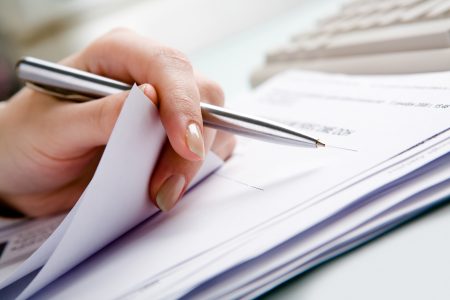Chapter 13 Bankruptcy
Filed under: Chapter 13
 A Chapter 13 bankruptcy is a form of debt reorganization. It allows you to restructure your debts and keep your property. Chapter 13 can be a good option if you have the money to stay current on your payments but need help with a large amount of debt.
A Chapter 13 bankruptcy is a form of debt reorganization. It allows you to restructure your debts and keep your property. Chapter 13 can be a good option if you have the money to stay current on your payments but need help with a large amount of debt.
Chapter 13 bankruptcy can help you:
-
- Get rid of your mortgage arrears
- Pay off your debt
- Reduce your monthly payments
- Keep your home
- Get rid of harassing calls from debt collectors
- Stop foreclosure
How Chapter 13 Works
To file for bankruptcy, you must file a “petition“ with the bankruptcy court. You must also complete credit counseling with an approved agency before you file a bankruptcy petition. Once the petition is filed, a “meeting of creditors“ will be held within 21 days. At that meeting, you will be asked questions about your debts and asked to fill out a form about your income. The debtor and the trustee must cooperate to make sure that the bankruptcy is fair to all of the creditors.
If you have “secured“ creditors, you must also file a Notice of Intention within 45 days after you file your Petition. The Notice of Intention tells your secured creditors that you have filed for bankruptcy. In order to keep your secured property, you must file a plan with the Court and your creditors.
If you have “unsecured“ creditors, you do not have to file a Notice of Intention. However, you must file a statement of financial affairs with the Court and provide the Court with a list of your creditors.
Listing Assets Isn’t A Bad Thing
You must also file a statement of your current income and expenses. If you want to keep property that is not secured by a creditor, you must list that property in your Chapter 13 plan. If the property is secured, you must make payments to your secured creditor based on the value of the collateral. The plan must be approved by the debtor, the trustee, and the creditors. The debtor and the trustee must act in a “cooperative“ manner to make sure that the plan is fair and reasonable. You must make all of your monthly payments to the trustee. The trustee then distributes the payments to the creditors. The trustee makes sure that the payments are made correctly and that the creditors receive the correct payments. You must follow a payment plan approved by the bankruptcy court to obtain a debt discharge.
If you are considering filing for bankruptcy, contact a Houston bankruptcy lawyer for guidance on how to eliminate your debt and protect your property.
Disclaimer: This blog post is for general informational purposes only and does not constitute legal advice. Your specific situation may vary. Please consult with an attorney at Baker & Associates to discuss your particular case.

